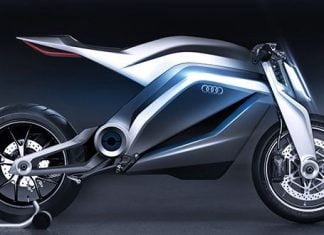When purchasing a motorcycle or car at an auction, it’s crucial to ensure that the transaction is secure and that you are getting what you pay for. One way to do this is by verifying the Vehicle Identification Number (VIN) of the vehicle. The VIN is a unique code assigned to each vehicle, containing important information about its history and specifications. By checking the VIN, buyers can ensure that the vehicle is legitimate, has a clean title, and hasn’t been involved in any major accidents or recalls. In this article, we explore the role of VIN verification in ensuring a secure auction purchase for motorcycles and cars.
Importance of VIN Verification
Legitimacy
Checking the VIN is essential to verify the legitimacy of the motorcycle or car being auctioned. Unfortunately, unscrupulous sellers and thieves may attempt to sell stolen or counterfeit vehicles at auctions. By copart check vin, buyers can confirm that the vehicle’s identity matches its documentation, ensuring that they are not unwittingly purchasing a fraudulent or illegal vehicle.
Ownership and Title
The VIN provides vital information about the ownership history of the motorcycle or car. By running a VIN check, potential buyers can verify that the vehicle has a clear title, meaning there are no liens or other encumbrances that could hinder the transfer of ownership. This step is crucial for avoiding legal complications and ensuring a smooth acquisition of the vehicle.
Vehicle History
Another significant aspect of VIN verification is accessing the vehicle’s history report. These reports provide important details on the vehicle’s accident history, maintenance records, and previous registration information. By obtaining this information, buyers can evaluate the condition of the motorcycle or car and assess whether it meets their desired standards. Additionally, a vehicle history report can help identify any potential issues such as undisclosed accidents or flood damage.
Safety Recalls
Checking the VIN also allows buyers to determine whether the vehicle has any outstanding safety recalls. Recalls are issued by manufacturers to address safety-related defects or non-compliance with safety standards. By verifying the VIN and checking recall databases, buyers can ensure that any necessary repairs or modifications have been made or can negotiate with the seller to address the issue before finalizing the purchase.
VIN Verification Process
Obtain the VIN
Before attending an auction, it’s crucial to obtain the VIN of the motorcycles or cars you are interested in bidding on. This information is typically available in the auction listing or can be obtained from the seller. Ensure that the VIN is accurate and matches the documentation provided.
Run a Vehicle History Report
Once you have the VIN, run a vehicle history report using trusted online services or databases. These reports compile information from various sources and provide a comprehensive overview of the vehicle’s history. Look for any indications of accidents, title issues, mileage discrepancies, or other red flags that may affect the value or safety of the motorcycle or car.
Check Safety Recalls
Utilize online databases provided by the manufacturer or the National Highway Traffic Safety Administration (NHTSA) to check for any open safety recalls associated with the vehicle. If there are any unresolved recalls, consider how they may impact the vehicle’s value or safety, and determine whether you are comfortable addressing them after the purchase.
Inspect the Vehicle
Before the auction begins, try to physically inspect the motorcycle or car if possible. Look for signs of damage, improper repairs, or wear and tear that may not be evident in the vehicle history report. If you lack technical expertise, consider bringing along a trusted mechanic or an experienced friend who can assist with the inspection.
Conclusion
When participating in vehicle auctions, ensuring a secure purchase should be a top priority for buyers. By verifying the VIN and conducting thorough checks on the motorcycle or car’s history, ownership, and safety recalls, buyers can minimize the risk of purchasing stolen, counterfeit, or problematic vehicles. Taking these steps not only enhances buyer confidence but also helps avoid potential legal, financial, and safety issues associated with unverified auction purchases. Remember, due diligence in VIN verification can provide peace of mind and contribute to a successful and secure auction purchase experience.


















